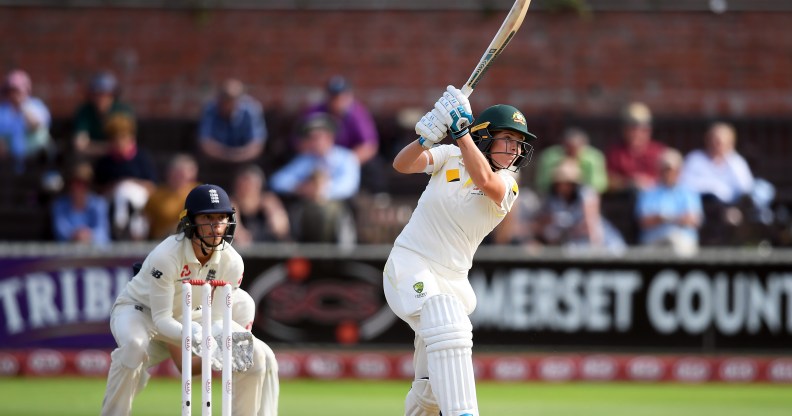England Cricket reviewing transgender policy ahead of new women’s league

Women’s Test Match between England and Australia in July 2019 in Taunton, England. (Alex Davidson/Getty Images)
The England and Wales Cricket Board is reviewing its transgender inclusion policy ahead of a new semi-professional women’s league that will start in 2020.
Under current ECB rules, binary trans people play in the men’s or women’s domestic teams based on their self-identified gender.
Women’s cricket in England and Wales follows a socially inclusive policy, which doesn’t require trans women to comply with any medical requirements to play in women’s teams.
But ahead of the new £20 million semi-professional women’s league starting next year, the ECB is reviewing this policy, looking especially at the elite level of the women’s game.
Claire Connor, the managing director of women’s cricket, said, “We are reviewing our policy at the moment. Cricket Australia released theirs this week and it is pretty much in line with the International Cricket Council’s policy, which is a medically driven policy.
“The ECB’s currently isn’t a medically driven policy. It’s a more socially inclusive policy and we will be reviewing that over the coming months.
“Cricket Australia has a specific policy for elite cricketers and a different policy for community cricketers. At the moment we don’t and I think we will be looking at that.”
Cricket Australia follows international guidelines on testosterone limits
The ICC’s gender-recognition policy imposes a testosterone limit on women competing in the elite women’s game. This means trans women and women with differences of sexual development (DSD) could be forced to take testosterone-reducing medication in order to continue playing.
The Cricket Australia board approved this new policy on August 8, bringing Australian cricket in line with ICC guidelines.
The new policy in Australia allows women to compete in state and national women’s teams if they maintain testosterone levels below 10 nanomoles per litre in their blood for one year.
An ECB spokesperson said, “Our position on transgender participation will be reviewed as part of our ongoing commitment to regularly review all governance policies.”
“In our current policy, the eligibility of players is based on one’s own self-identified gender, with no medical requirement. We are unlikely to make any unilateral changes to this stance. We are proud that this model promotes an inclusive environment for all participants in domestic and recreational cricket.”

